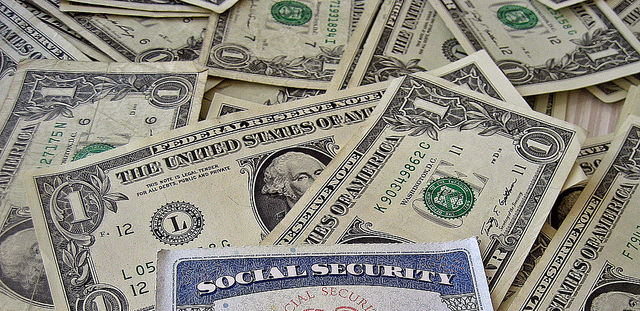Man's Story Exposes the Scary Way Unpaid Student Loans Can Haunt You Years Later

By:
Earning a college degree is more important for job security in the U.S. than ever before, but it's also more expensive. Many of the 40 million Americans who have have student loan debt can't pay it, and one man's story shows how that debt can haunt a borrower all the way to retirement.
Jaime Chastain's struggle to pay off his federal student loan debt eventually caught up to him several years later when the government began to garnish his Social Security checks.
In 1982, Chastain took out a $12,500 federal loan to get a Master's degree in Liberal Arts. He couldn't find a steady job for several years so he defaulted on his loans, and when he finally did find a job teaching at a community college, the federal government took out about $400 a month from his pay, according to CNN.
When he retired in 2014, he still hadn't paid off his loans and the government started taking $177 from his Social Security checks for more than a year. The 68-year-old told CNN that he probably paid more than three times what he originally owed because of the interest - it took most of his career and some of his retirement to pay it off.
The government has taken money from thousands of social security checks because of student loans.
 Flickr/401kcalculator.org - flic.kr
Flickr/401kcalculator.org - flic.kr
The government took money from the social security checks of 173,000 people in 2015 because of student loan debt, including younger people who have received disability benefits, and that number is expected to rise. Since 2001, the government has taken more then $1 billion in owed student loan debt from Americans' social security checks, according to Fortune.
Unpaid federal student loan debt doesn't go away.
 Stocksy/Good Vibrations Images
Stocksy/Good Vibrations Images
In September, 3.6 million people were late on their federal student loan payments, according to The Washington Post. However, more than 8 million people defaulted on their loans as of June, meaning they hadn't made a payment on their loans in the previous nine months.
Once a borrower has defaulted on a federal student loan, under current law the government has the right to take money from income tax refunds, wages or any other kind of federal payment, including social security.
 RikkisRefuge - flickr.com
RikkisRefuge - flickr.com
You do have some options if you can't pay.
ATTN: previously reported on the Income Driven Repayment Plans the Department of Education offers to prevent people from defaulting on their loans. This type of repayment plan bases the payment amount on a percentage of the borrower's income, so if a borrower is unemployed they could potentially not owe anything until they get a job.
Will federal student loan repayment change under the next administration?
On the campaign trail, Donald Trump said he wanted to cap federal student loan payments at 12.5 percent under his presidency, which is a stance contradicts the traditional fiscally conservative view of his party.
"Under my student program, we would cap repayment for an affordable portion of borrower's income, 12.5 percent... If borrowers work hard and make their full payments for 15 years, we'll let them get on with their lives," the president-elect said at a campaign rally in October.
The Washington Post's Danielle Douglas-Gabriel wrote, if implemented, the plan would be "the most liberal student loan repayment plan since the inception of the federal financial aid program."
